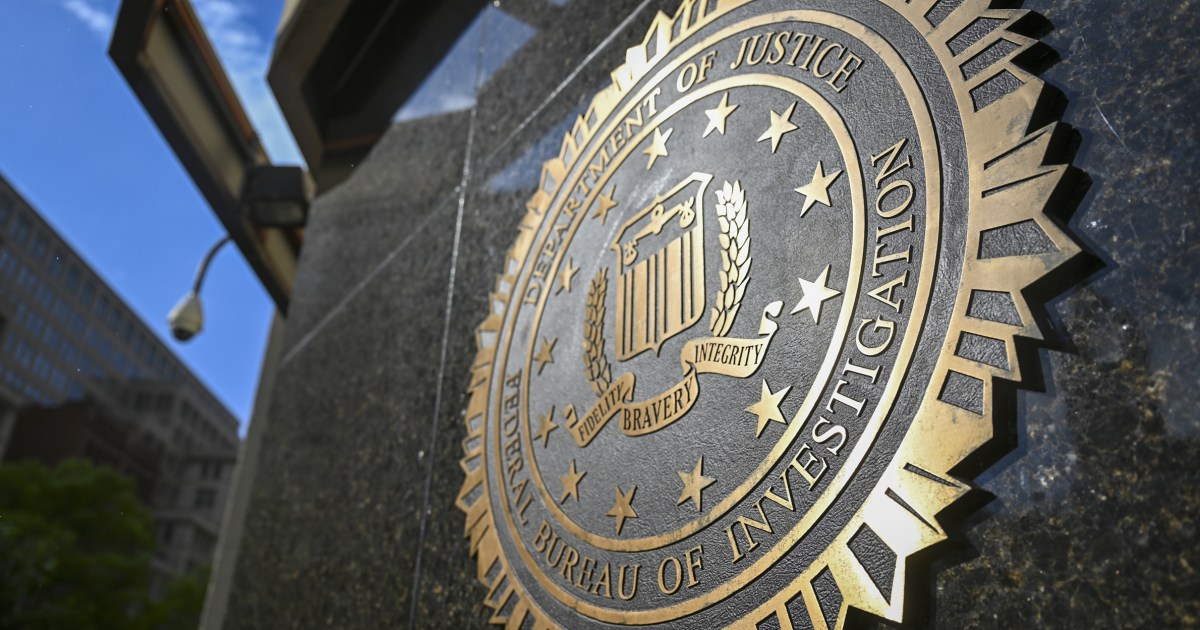Iranians sent “unsolicited emails” that included stolen material that was not publicly available from former President Donald Trump’s campaign to people associated with his Democratic political rival, the FBI and two other government agencies said Wednesday.
The FBI and officials from the Office of the Director of National Intelligence and the Cybersecurity and Infrastructure Security Agency said there was “currently no information” indicating that recipients associated with President Joe Biden’s campaign had responded to the emails, which the government officials condemned as part of an effort “to stoke discord and undermine confidence in our electoral process.”
The agencies had confirmed last month that Iran was behind efforts this year to compromise presidential campaigns of both parties after Trump’s campaign accused Iran of a hacking attempt in June.
Iranian hackers have continued to make attempts since late June to transmit nonpublic stolen material tied to Trump’s campaign to media organizations, according to Wednesday’s statement, which noted that the FBI is tracking the activity.
The agencies also warned of growing foreign efforts to meddle in U.S. elections ahead of November, particularly from Russia, Iran and China, countries that are “trying by some measure to exacerbate divisions in U.S. society for their own benefit, and see election periods as moments of vulnerability.”
In a statement Wednesday, Trump campaign spokeswoman Karoline Leavitt said Iranians wanted to help Vice President Kamala Harris, who replaced Biden as the Democratic nominee, “because they know President Trump will restore his tough sanctions and stand against their reign of terror.”
In an all-caps Truth Social post Wednesday night, Trump claimed Harris and her campaign “were illegally spying on me. To be known as the Iran, Iran, Iran case!”
Harris campaign spokesperson Morgan Finkelstein said the campaign has cooperated with law enforcement since it learned about the hacking effort.
“We’re not aware of any material being sent directly to the campaign; a few individuals were targeted on their personal emails with what looked like a spam or phishing attempt,” Finkelstein said in a statement.
Three federal law enforcement sources confirmed the accuracy of the Harris campaign’s statement to NBC News, saying law enforcement agencies tracked the stolen information from the Trump campaign and determined that several people linked to Biden’s campaign received emails containing the information. The recipients never responded to the emails and may not have even opened them because they appeared to be phishing attempts, the sources added.
Law enforcement agencies contacted those people and the Biden campaign to make them aware of the emails, the sources said. The recipients did not reach out to law enforcement agencies to alert them of what they had, but sources said that that is not an indication of hiding anything or wrongdoing and that the staffers most likely did not realize what was in the emails.
Iran has denied the accusations, its ambassador to the United Nations calling them “entirely baseless, lacking any credibility and legitimacy” and “in no way acceptable,” the semi-official Fars news agency reported Thursday. U.N. envoy Ali Bahreini said that Tehran “has no motivation or intention to interfere in U.S. elections” and called on the U.S. to provide its evidence so Iran could respond fully.
In a report last month, Google’s Threat Analysis Group, which monitors government-backed cyberattacks, said an Iranian hacker group tied to the Islamic Revolutionary Guard Corps targeted both the Trump and the Biden-Harris campaigns in a phishing operation in May and June.
NBC News reported this month that the Justice Department plans to file criminal charges in connection with the hacking of Trump’s campaign, according to two law enforcement officials. A spokesperson for Iran’s mission to the United Nations has denied the country’s role in the operation.
The Justice Department charged Iranians with election meddling during the last presidential election. In 2021, the Justice Department indicted two Iranians over a “cyber-enabled” campaign to intimidate and influence American voters during the 2020 presidential election.


Leave a Reply